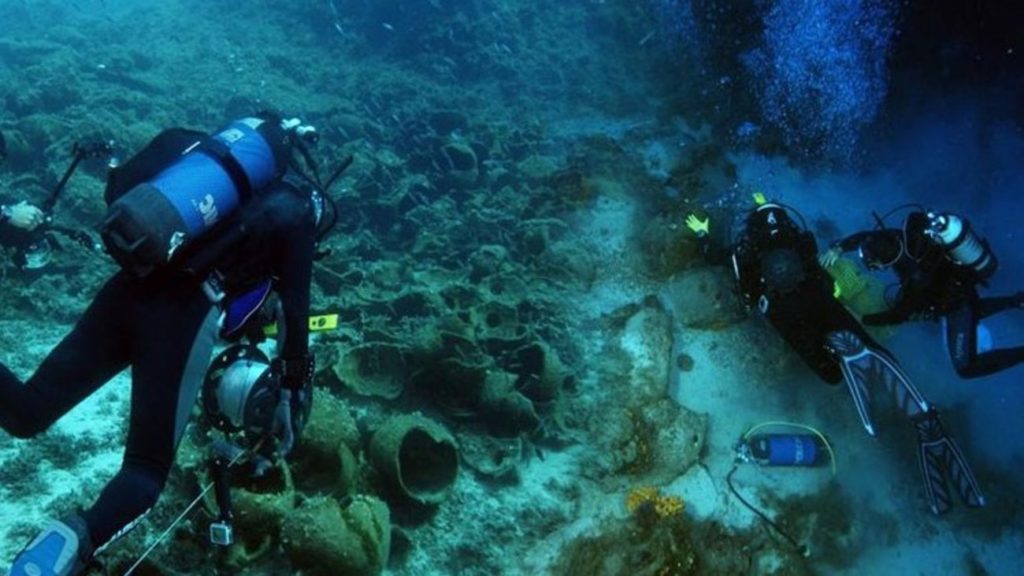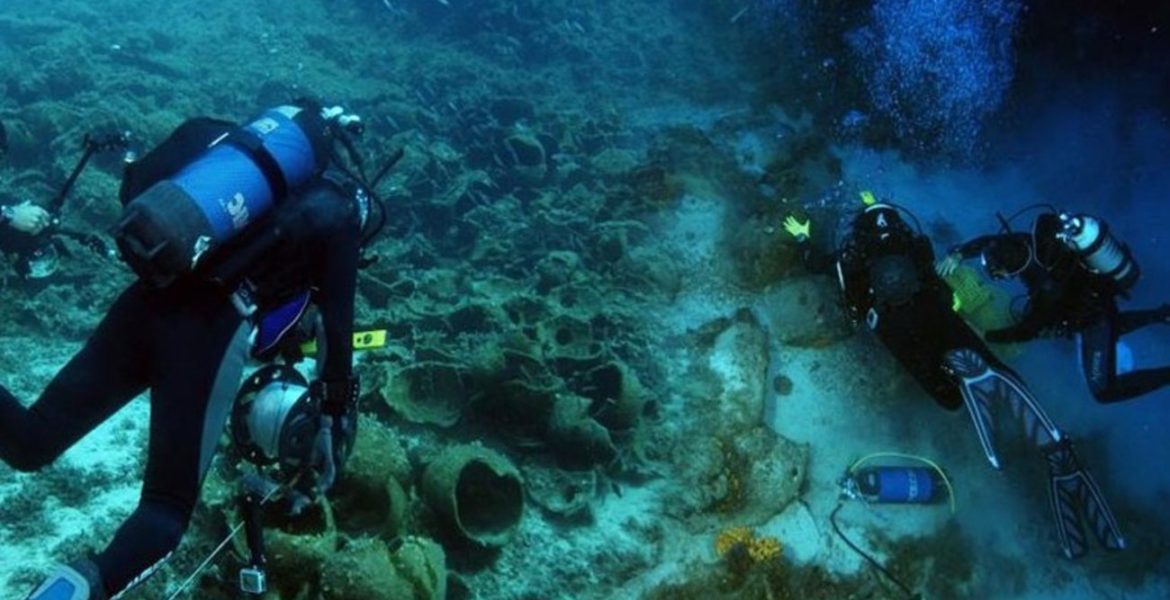
Greek archaeologists have discovered over 58 shipwrecks filled with antiquities, in what has been reported as the largest find of ancient wrecks in the Aegean and the entire Mediterranean.
The wrecks were discovered in the small island archipelago of Fournoi and are said to be from the period of ancient Greece right through to the 20th century. Most are dated to the Greek, Roman and Byzantine eras.
It is the norm to find shipwrecks together in the Aegean, however, this is the first time so many have been discovered.
Experts say they this reveals a lot about how ships full of cargo travelling through the Aegean, the Mediterranean and the Black Sea met their fate in sudden storms and surrounded by rocky cliffs in the area.
“The excitement is difficult to describe, I mean, it was just incredible. We knew that we had stumbled upon something that was going to change the history books,” said underwater archaeologist and co-director of the Fournoi survey project Dr. Peter Campbell of the RPM Nautical Foundation told Reuters.
The foundation is collaborating on the project with Greece’s Ephorate of Underwater Antiquities, which is conducting the research.
When the international team began the underwater survey in 2015, they were astounded to find 22 shipwrecks that year. With their latest discoveries, the number has now climbed to 58, and the team believes there are even more to come.
“I would call it, probably, one of the top archaeological discoveries of the century in that we now have a new story to tell of a navigational route that connected the ancient Mediterranean,” Campbell told Reuters.
The vessels and their contents paint a picture of ships carrying goods on routes from the Black Sea, Greece, Asia Minor, Italy, Spain, Sicily, Cyprus, the Levant, Egypt, and North Africa.
The team has raised more than 300 antiquities from the shipwrecks, particularly amphorae, giving archaeologists rare insight into where goods were being transported around the Mediterranean, with goods which believe were mostly wine, oil, fish sauces, and honey.
“It is not a coincidence that a large number of the wrecks have been found in those passages… if there is a sudden change in the wind’s direction, and if the captain was from another area and was not familiar with the peculiarities of the local climate, he could easily end up losing control of the ship and falling upon the rocks,” said Koutsouflakis.
In later times Fournoi was considered a pirate’s haven, said Campbell. Pirates were drawn to the area by the abundant flow of vessels laden with rich cargo. Although weather was believed to be the primary reason for the sinkings, piracy may have contributed in some cases, he said.
The condition of the shipwrecks vary. Some are well preserved, others are in pieces after the ships crashed on the rocks.
The survey team discovered the shipwrecks from sightings by local sponge divers and fishermen.
The team, which includes archaeologists, architects, conservators, and divers are now determined to create a centre for underwater archaeology in Fournoi for students, as well as a local museum to house their finds.
*Source: Reuters

